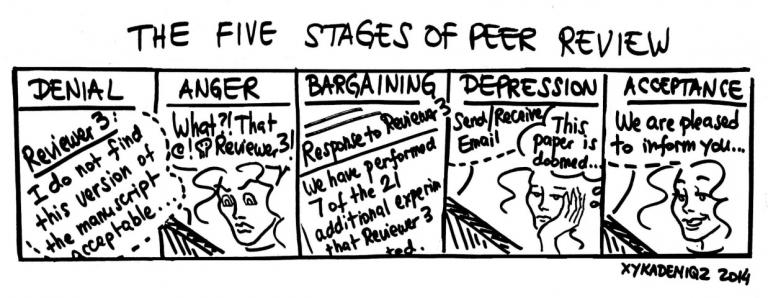I received an invitation recently to submit a manuscript which I felt I should share, despite the warning not to do so at the bottom of the email. Sending me an unsolicited email seems to me that is should invalidate any demand in a disclaimer of the sort at the bottom. Nonetheless, after sharing the text of the email, I was contacted by an attorney telling me that I was violating the sender’s intellectual property in doing so, and so I have since removed it.
There were quite a number of oddities about the email, not limited to the fact that I haven’t actually published on the “power of prayer.” But the biggest is the fact that the publisher emphasizes that they have an A+ rating with the Better Business Bureau!
It may well seem strange to those outside academia that having a Better Business Bureau rating at all is a worrying sign. And it may be that going forward into the future, we will need something like a Better Publisher Bureau to serve as a clearinghouse for ratings and reviews of places that offer to oublish our work. Open access publishing and print on demand technology mean that things look much better for those who must “publish or perish” than they ever did before. But the proliferation of ways to publish and increased ease and lower expense involved in the process also means that it is easier than ever to get one’s work into print. There is nothing wrong with self-publishing at all, for most purposes. It just lacks the one thing that sets academic publishing apart: peer review. And so the problem with those who will publish anything is not that this is inherently “bad,” but that it lacks the very thing that makes it valuable for the purpose of tenure and promotion. Perhaps we need to change the saying to “peer review or perish”? But some of the predatory publishers claim to offer that, even if it is unclear whether they do. What else could capture what “publish or perish” used to mean, but can convey it more clearly in our era of cheap fast and easy publishing, when mere publication is not a clear sign? Not that it ever really was – there have always been vanity presses. And it used to be that self-publishing was the norm, and peer review was how your work was received after publication. If we could just move to the modern equivalent of that, where it was fine to simply post a pdf of your work online, and then the question was whether other scholars found it engaging, the concern about predatory publishers might go away.
What do others think? And what are some of the more amusing emails you have received asking you to publshe your work with this or that outlet?
Finally, here is a comic from XYKADEMIQZ that I have shared here before, depicting the “5 stages of peer review”:














